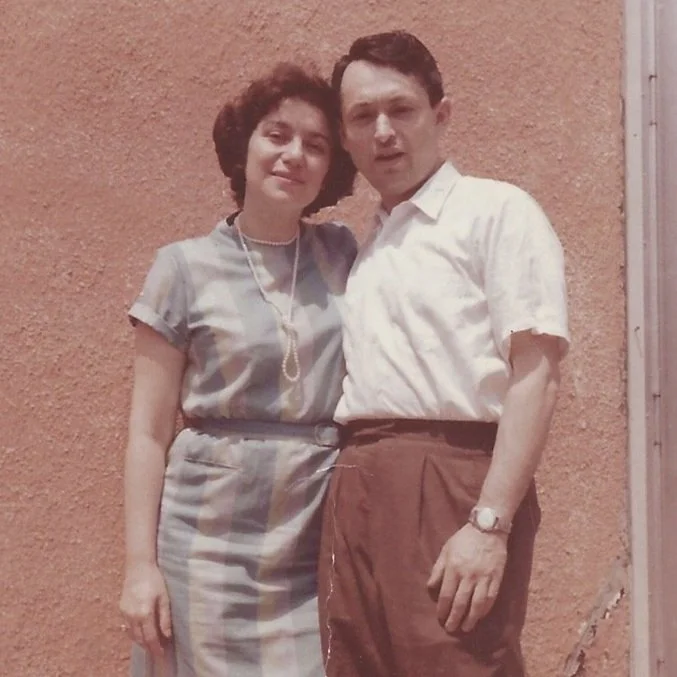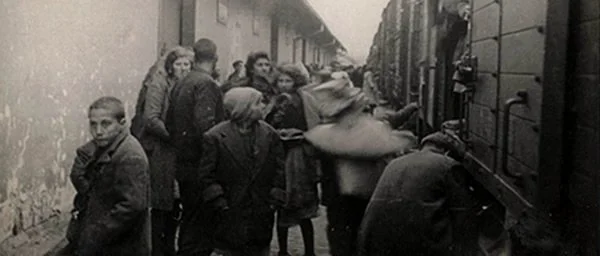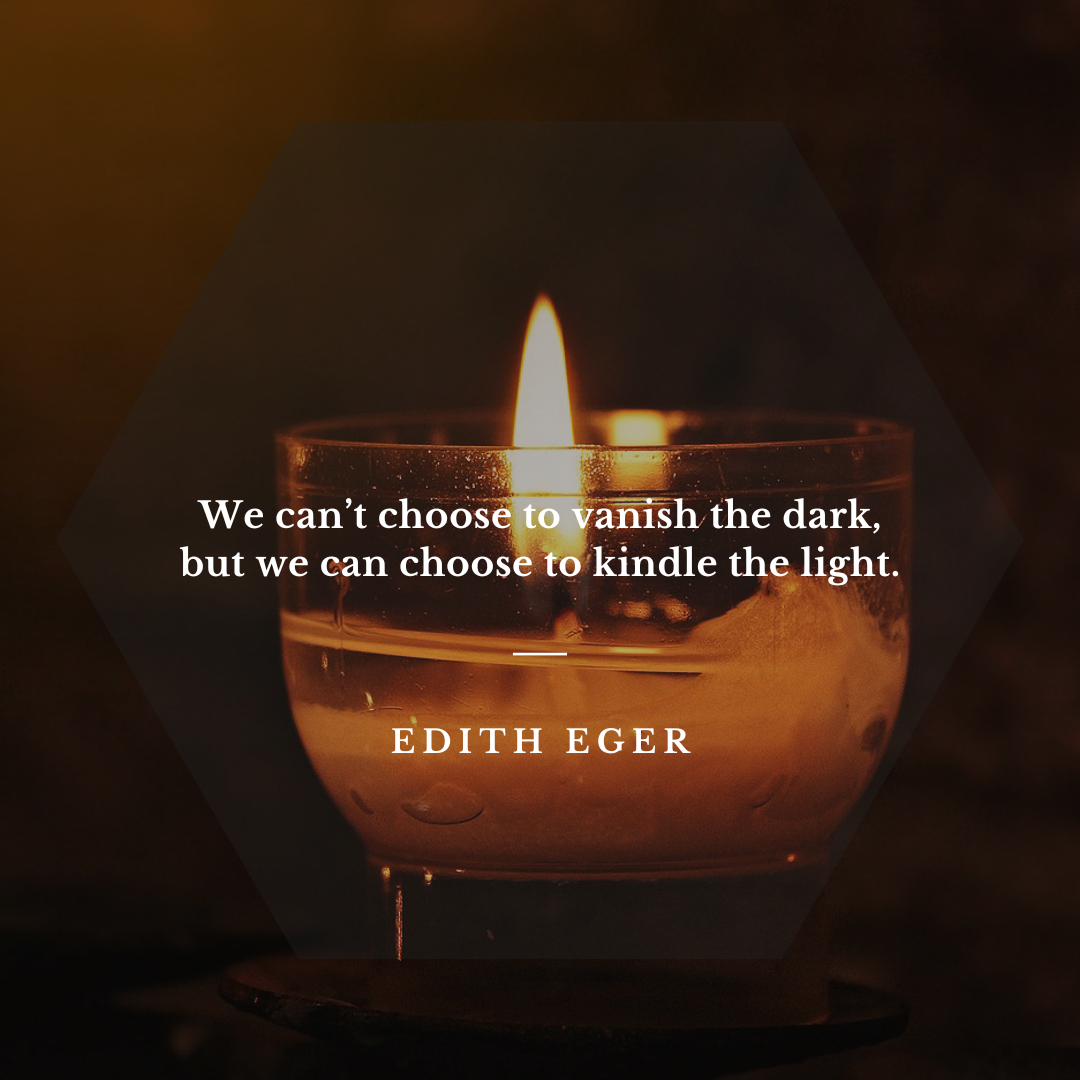Is the Holocaust Over?
Reflections in honor of International Holocaust Remembrance Day—January 27, 2025
In the late 1980s, a member of the fundraising committee for the United States Holocaust Memorial Museum contacted my father for a donation. By all appearances, my dad should have been an ideal donor. A retired inventor and successful entrepreneur, he had survived three horrendous years in Nazi concentration camps while nearly his entire family was killed in Auschwitz. His wife was also a concentration camp survivor who had been orphaned during the war.
Yet, my father had no interest in supporting a Holocaust museum. To him, the Holocaust was over, and he did not want its horrors memorialized. His goal was to embrace healing, peace, and love in present time—to focus on what unites humanity, not divides us. “It’s not that I deny the past,” he often said, “I just don’t live in it. A good memory is one that remembers the good.”
From left to right: Myra's father Mendek, his sister Rutka, mother Ida, cousin Lipa, sister Bronia, sister Mila, brother Tulek and father Israel
In contrast, my aunt Bronia—my father’s only surviving sibling—has made it her life’s mission to educate the world about the Holocaust while continuously honoring the memory of her murdered parents, brother, sisters, aunts, uncles and cousins. Even at 93, she speaks to thousands annually, sharing our family’s horrific story of being hunted, starved, brutalized, and exterminated. Through her presentations, Bronia hopes to inspire action against antisemitism, cruelty, and injustice.
For her entire life, Bronia has felt the constant threat of antisemitism. The current surge in antisemitic violence deeply alarms her. To Bronia, the Holocaust is not over.
President Biden speaking with Bronia and her daughter Etta in the Oval Office, January 2022
While 2025 marks 80 years since the end of World War II, there are many ways in which the Holocaust remains alive within me.
Just last month, when I received an automated message from United Airlines informing me that my window seat had been reassigned to a middle seat in the center of the plane, panic overtook me. I called the airline, and became hysterical when the agent couldn’t help. “I’m claustrophobic on planes,” I sobbed. “I can only fly next to a window. I must get my seat back!”
The next day, when I couldn’t resolve the issue at the airport despite tears and pleas, I began looking inward to examine my extreme reaction. Immediately, I recalled the terrible nightmares that plagued me during my first semester of college at the young age of 16—a time when submerging myself in the horrific details of Holocaust had broken me apart.
Myra’s parents, Edith and Mendek Rubin, circa 1961
Growing up, the Holocaust was an ever-present, silent shadow in my home. My parents never talked about it, not even with each other. Afraid to ask questions, I simply absorbed the unnamed terror and grief.
My innocence evaporated when I enrolled in a Holocaust literature class in college. Though determined to face my history, discovering the unthinkable atrocities inflicted upon my family was too much for my mind to accept or my heart to bear. How could I ever feel safe living in a world where humans could be so cruel?
I learned that jews from Poland, like my father, were among the first deported to concentration camps early in the war. Three million Polish Jews out of a pre-war population of 3.3 million were annihilated. Jews from Hungary, like my mother, were deported in 1944. More than 70% of them were murdered.
I read about the transports in cattle cars in which Jews were packed on top of each other without food or water, many dying along the way. My mother had been taken to Auschwitz in one of those cattle cars when she was fifteen.
As if something was forcing me to prove that I could endure what my mother had, I began having petrifying dreams of being smothered by hundreds of wailing, helpless, terrified people in an airless cattle car on my way to Auschwitz. Every night, I’d awaken overwhelmed with terror, heart racing as I struggled to catch my breath. If I fell back asleep, I always returned to that same cattle car of horror.
The nightmares seeped into my days, manifesting as panic attacks that became increasingly frequent, intense, and debilitating. One morning, I lost all sense of my body. I left school for a week, and was diagnosed as having had a minor nervous breakdown. “Don’t ever tell anyone,” my mother urgently cautioned me. More shame to hide, more pain to bury…
Forty-five years later, losing my window seat reignited the teenage panic I had never fully faced or healed. My overreaction was also an echo of a well-worn pathway in my nervous system—one that mirrored my traumatized mother’s habitual panic at the slightest trigger. From infancy, her hypervigilant, overreactive nervous system served as a blueprint for my own, shaping me without my awareness or conscious consent.
Decontextualized, my dramatic reaction to the seat change seems irrational. Contextualized, it reveals the unrelenting impact of the Holocaust.
As International Holocaust Remembrance Day is observed on January 27, I join my aunt in honoring the memory of our slaughtered family and six million other innocent victims. I also honor my father by renewing my efforts to uncover the places where the Holocaust remains alive within me, waiting to be illuminated and healed.





